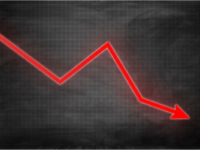The latest Xero Small Business Insights report reveals a surprisingly strong start for Australian small businesses in the first quarter of 2024 after a soft December.
The Xero Small Business Index averaged 120 points in the March quarter, up slightly from the December quarter result (115 points). This was driven by a sharp jump in the February (127 pts) and March (134 pts) results, a significant improvement compared to the December (89 pts) and January (98 pts) readings.
“The improvement from a tough end to last year is a welcome sign that small businesses started 2024 better off,” Louise Southall, Xero Economist, said. “The Index dropped below 100 points in December last year, so it’s encouraging to see stronger growth in three critical success levers – jobs, wages, and sales – during the first quarter of this year.”
Sales growth rebounded significantly in January (+6.1 per cent y/y) and February (+6.9 per cent y/y) following weak sales in December (+1.9 per cent y/y), which the Index notes as an indication that conditions are improving for small businesses. However, sales experienced a drop in March (-2.4 per cent y/y), which is being attributed to the earlier timing of the Good Friday public holiday when most businesses were closed. Healthcare (+13.5 per cent y/y) and real estate (+10.0 per cent y/y) were the best-performing sectors in January and February, and the only industries to record double-digit growth, according to the report.
Small business hiring lifts
Small-business hiring continued to rise in the March quarter (+3.7 per cent y/y) and was moderately higher than average jobs growth in 2023 and the long-term average for this series (3.0 per cent y/y). Jobs growth was particularly strong in March (+4.3 per cent y/y) and was the largest rise in jobs since October 2022, which the Index attributes to small businesses feeling more confident about hiring new staff. The healthcare sector (+9.2 per cent y/y) led the gains. In contrast, the hospitality sector (-1.4 per cent y/y) recorded the third consecutive quarter of declining jobs.
Wages growth below inflation
Meanwhile, wages growth is now sitting just above the long-term average for this series (+3.0 per cent y/y). However, the pace of growth is still below inflation and small business pay rises are below the national average, as indicated by the latest Wage Price Index rise (+4.2 per cent y/y). The Index suggests that real wages for small business staff are not yet rising.
Payment time measures remained steady in the three months to March, continuing the trend seen throughout 2023. Small businesses waited an average of 22.6 days to be paid in the March quarter (down from 22.7 days in the December quarter) and payments were late on average by 6.5 days (up from 6.3 days late in the three months to December).
“The data from Xero Small Business Insights provides us with a critically important understanding of Australian small-business performance,” Anthony Drury, Managing Director for Xero in ANZ, said. “Against challenging economic conditions, it’s very pleasing to see a promising start to the year and we’re hopeful this momentum can continue. For small businesses looking at opportunities to grow or streamline operations in 2024, particularly as we head into the busy end-of-financial-year period, we’d encourage them to speak with their advisor, and review their biggest pain points and areas to improve productivity. There might be some accessible actions they can take, such as leveraging more tech tools.”
This article was first published on Inside Small Business.















